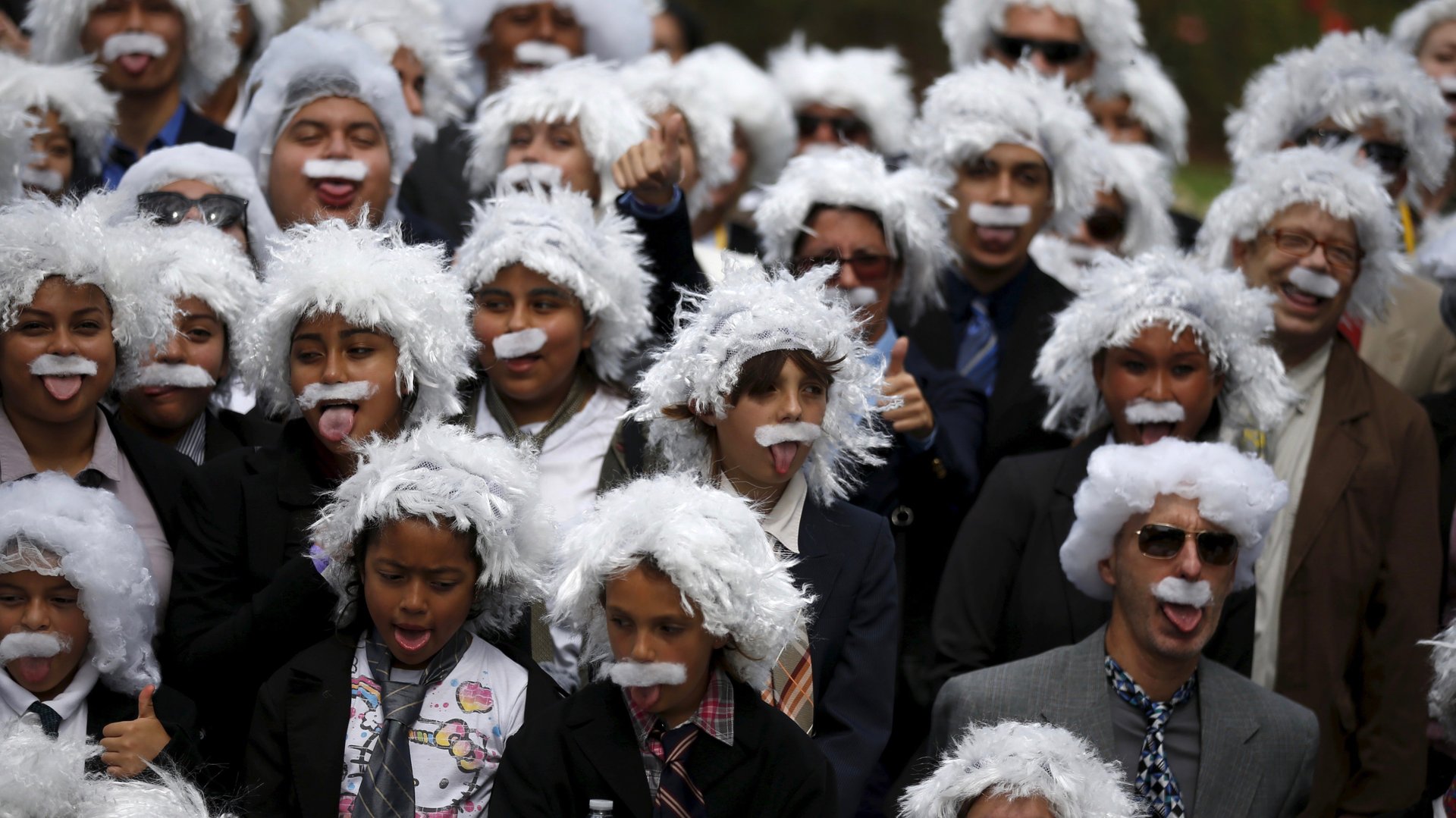Albert Einstein’s best ideas came when he was aimless. Yours can too
Busy people don’t have epiphanies. Great realizations occur when we’re chilling—staring up at the sky, out at the sea, or wandering among trees.


Busy people don’t have epiphanies. Great realizations occur when we’re chilling—staring up at the sky, out at the sea, or wandering among trees.
Nobel Prize-winning physicist Albert Einstein is perhaps the best proof of this truth. Einstein is known for publishing ”the most beautiful of theories” during the first half of the 20th century—scientific masterpieces that would change humanity’s understanding of space, time, and gravity, the mechanics of the universe itself. But according to theoretical physicist Carlo Rovelli, Einstein wouldn’t have come up with those theories if he hadn’t been inclined to just hang around—seemingly without purpose.
The seeds of Einstein’s incredible ideas were planted during the year he took off from high school in the 1890s, during which he contemplated the world with no pressure to pass exams or accomplish anything at all. Einstein “spent a year loafing aimlessly,” Rovelli writes in Seven Brief Lessons on Physics. “You don’t get anywhere by not ‘wasting’ time.”
Einstein was obsessed with science, and he did go back to school. But he was able to understand the world in a way no one else had in part because he spent a lot of time at sea.
As a teenager, he learned to sail, and it was out on the water that he observed the workings of the universe and came to understand that space and time were curved, findings that revolutionized science. In a 1930 letter, Einstein wrote to mathematician Oswald Veblen, “Nature conceals her secrets because she is sublime, not because she is a trickster.”
To uncover those secrets, we have to be away from our routines and computers, observing the world.
Rovelli himself followed a similar path. As a young physics student in Italy, he internalized Einstein’s theories while he was on vacation, hanging out at the beach and reading. He writes, “Every so often I would raise my eyes from the book and look at the glittering sea; it seemed to me I was actually seeing the curvature of space and time imagined by Einstein. As if by magic; as if a friend were whispering into my ear an extraordinary hidden truth, suddenly raising the veil of reality.”
The adult Einstein continued to enjoy disconnecting himself from the demands of the land. In 1932, he wrote a letter to friends while on a cruise ship in the waters of Panama, explaining, “A cruise in the sea, is an excellent opportunity for maximum calm and reflection on ideas from a different perspective.”
His wife, Elsa, enjoyed the effect of the sea on her beloved genius, too. On the other side of that same letter, she noted, “There is no other place where my husband is so relaxed, sweet, serene and detached from routine distractions, the ship carries him far away.” This letter is part of a series of Einstein memorabilia that’s being auctioned on June 19 in Jerusalem. The starting price is $4,000, which is perhaps not much to ask considering the priceless advice it contains.
Although Einstein sailed all his life, he wasn’t very good at it and famously got lost a lot. He wasn’t into fancy crafts, or racing, and shirked motorboats, sailing on a small vessel he named Tinef, meaning “junk” in Yiddish. He summed up his technique as follows, “Set sail, make it fast, no thoughts of energy or velocity, loll back, let boat drift.”
This lackadaisical approach did sometimes get him in trouble. Einstein occasionally ended up wandering the beach, befuddled, and got picked up by police, as happened in the summer of 1939 in Long Island. “People used to look out there and laugh at this strange guy in his sailboat going nowhere,” a local named Martha Paul told the New York Times (paywall) in 2007, recalling that summer when the famous physicist with the wild hair lived on Long Island, wearing women’s sandals that he called “sundials” and sailing slowly to nowhere.
Einstein is not alone in appreciating the importance of doing nothing as a way to generate creative ideas. As Olivia Goldhill explains in Quartz, “psychologists recommend that children be bored in the summer.” The idea behind allowing for boredom isn’t to torture kids, of course. It’s to give young minds the time and space (ahem) to amble, discover, create, and find their own genius.
Packed schedules don’t allow for that in kids or adults. What we learn outdoors can inform the rest of our busy lives, so it’s worthwhile to take some time to explore aimlessly. And if we’re lucky, we might just have a profound epiphany, or at least an opportunity to see the world in a new light.
As Einstein noted in his just-published travel diaries, written from 1922-1923 during a very busy year in which he was awarded the Nobel Prize in physics and toured Japan, China, Palestine, and Spain, “How conducive to thinking and working the long sea voyage is—a paradisiacal state without correspondence, visits, meetings, and other inventions of the devil!”